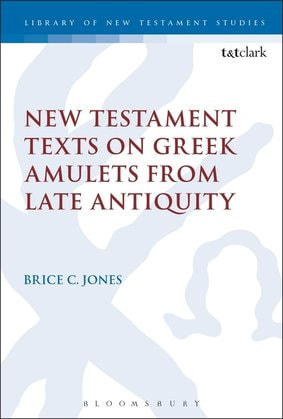|
Here is a fascinating video of Ludwig Koenen, one of the giants in the field of papyrology. He talks about his own training, his training of his own graduate students and the method thereof, his work on the Cologne Mani codex, and the future of papyrology. The video offers an excellent insight into the history of papyrology through the words of one of its doyens. Thanks to Michigan for producing this. The Michigan collection and the faculty and staff there are simply the best. If I could move to Ann Arbor, I would!
0 Comments
 Adolf Deissmann Adolf Deissmann "It is regrettable, therefore, to see the merest scrap of an ancient book treated as if it were something sacred—immediately published with notes and facsimile, even if it be a fragment of some forgotten scribbler who deserved his fate—while on the other hand the non-literary items are often not even printed in full." Diessmann, Light from the Ancient East (1910), 31.  My article "Three New Coptic Papyrus Fragments of 2 Timothy and Titus (P.Mich. inv. 3535b)" has just been published in the latest issue of the Journal of Biblical Literature. I have uploaded a PDF of the article in the publication section of this site (here).  Telemachus and Penelope Telemachus and Penelope In Book 17 of Homer’s Odyssey, when Penelope and Eumaeus are speaking in private about Odysseus while the suitors feast in the halls of the king's palace, Telemachus sneezes and Penelope laughs: “At the queen’s last words, Telemachus sneezed aloud [μέγ᾽ ἔπταρεν], and the noise went thundering round the hall. Penelope laughed.” (Od. 17.541-542) Why does Penelope laugh? Because she was convinced that Telemachus’ sneeze was a prophetic sign that her words concerning the demise of the suitors would come true: "Did you not see how my son sneezed as I finished then? So death for the suitors may still not be unachieved" (17.544-545). Sneezing was widely recognized in the ancient world as a divine omen. In Xenophon’s Anabasis, there is a good description of this: “As he was saying this a man sneezed [πτάρνυταί], and when the soldiers heard it, they all with one impulse made obeisance to the god; And Xenophon said, ‘I move, gentlemaen, since at the moment when we were talking about deliverance, an omen [οἰωνὸς] from Zeus the Saviour was revealed to us....’” (Anab. 3.2.9) The idea behind this is that the Greeks and Romans believed that the gods governed all things. So Plutarch can say that “For proof of this I may call Homer for my witness, who affirms that there is nothing done or brought to perfection of which a god is not the cause” (De Pythiae oraculis 22). In the case of sneezing, it was something that could not be controlled and so it was understood as a supernatural cause or influence. Sometimes the omen was not always positive, and the significance and interpretations of sneezes varied depending on a variety of factors. There are many references to sneezing as an omen in both Greek and Roman literature, and I should like to point my readers to the fascinating articles by Pieter W. van der Horst and Arthur Stanley Pease (citations below), in which there is to be found numerous references to the literature. According to van der Horst, "sneezing as a manifestation of a divine power played a much more important part in ancient divinatory speculation than we are often inclined to assume." So, next time you sneeze, ponder what the gods may be brewing up for you! 1. Pieter W. van der Horst, “The Omen of Sneezing in Pagan Antiquity,” Ancient Society 43 (2013): 213-221.
2. Arthur Stanley Pease, "The Omen of Sneezing," Classical Philology 6 (1911): 429-443. [Online here.] |
Archives
December 2020
Categories
All
|
